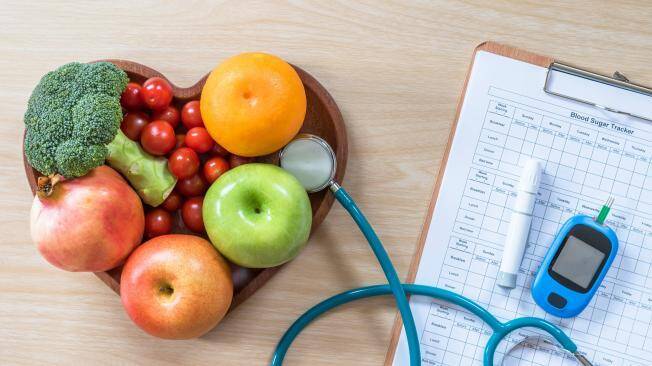Nutritionist warns about the risks of the "princess diet," which has gone viral among young people: "They are entering into very harmful territory."

José Luis Esteller, a nutritionist at Vithas Almería Hospital in Spain, issued a strong warning about the so-called "Disney princess diet," a trend that has become popular among teenagers and young women through social media. According to the specialist, this extreme eating pattern "is a dangerous way of romanticizing and disguising an eating disorder."
Esteller explained that this diet, which presents itself under the guise of elegance and self-control, is based on severe and unsustainable calorie restriction . "They're entering into very harmful territory," he warned, noting that many adolescents approach this practice as a challenge, without understanding the physical and psychological risks it entails.

This diet can cause malnutrition, hormonal imbalances, fatigue, and digestive problems. Photo: iStock
The nutritionist explained that the diet consists of consuming between 300 and 600 calories a day—less than 25% of what is recommended for a healthy adult —with theme days associated with Disney princesses and symbolic foods.
For example, Snow White Day involves eating only apples. Furthermore, practices such as skipping meals as punishment, drinking only liquids to suppress appetite, and exercising vigorously on an empty stomach are promoted.
Consequences for physical and emotional health For Esteller, the negative effects of this diet can manifest very quickly: malnutrition, loss of muscle mass, hormonal changes, hair loss, fatigue, digestive problems, and a risk of fainting. Added to this are psychological damage such as obsession with body image, anxiety, depression, and the onset of disorders such as anorexia or bulimia.
Adolescence and vulnerability to social media messages Esteller emphasized that this type of content particularly affects adolescents, who are going through a stage of identity development and whose self-esteem depends largely on external validation.
"We must be especially careful with content aimed at adolescents, because they are at a vulnerable stage, where their self-esteem depends heavily on external acceptance. These types of 'diets' encourage guilt, comparison, and constant dissatisfaction with one's body," she noted.
In response to these trends, the specialist advises avoiding any restrictive or unbalanced diet and opting for a diet based on fresh, seasonal produce, such as fruits, salads, and fish.
She also recommended maintaining regular meal times, not skipping meals, listening to hunger and satiety signals, and, if you want to lose weight, always consulting a nutrition professional.

She recommends avoiding restrictive diets, prioritizing fresh foods, and maintaining regular mealtimes. Photo: iStock
Vithas Almería Hospital supported the specialist's statements and emphasized the urgent need to raise awareness about the dangers of extreme diets that are spread unchecked on social media.
The medical institution noted that many of these practices are completely lacking in scientific basis and can lead to serious health consequences, especially in adolescents and young adults who are more vulnerable to social and aesthetic pressure.
The hospital emphasizes the importance of fostering a healthy relationship with food, based on respect for the body and nutritional knowledge. In this regard, they emphasize their commitment to promoting sustainable and safe habits through a multidisciplinary team specializing in nutrition and dietetics.
"At Vithas Almería, we insist on the need to promote nutritional education from childhood and to dispel myths about thinness as a synonym for health. The ideal body doesn't exist, much less if it's achieved at the expense of one's health," the specialist noted.
More news in EL TIEMPO *This content was rewritten with the assistance of artificial intelligence, based on information from Europa Press, and reviewed by the journalist and an editor.
eltiempo

%3Aformat(jpg)%3Aquality(99)%3Awatermark(f.elconfidencial.com%2Ffile%2Fa73%2Ff85%2Fd17%2Fa73f85d17f0b2300eddff0d114d4ab10.png%2C0%2C275%2C1)%2Ff.elconfidencial.com%2Foriginal%2F042%2F919%2F8fe%2F0429198fe9bdca2000e3bddd6724f75f.jpg&w=1280&q=100)

%3Aformat(jpg)%3Aquality(99)%3Awatermark(f.elconfidencial.com%2Ffile%2Fa73%2Ff85%2Fd17%2Fa73f85d17f0b2300eddff0d114d4ab10.png%2C0%2C275%2C1)%2Ff.elconfidencial.com%2Foriginal%2Fd3e%2Ffeb%2F551%2Fd3efeb5512bf8baef1aac749187902f6.jpg&w=1280&q=100)

%3Aformat(jpg)%3Aquality(99)%3Awatermark(f.elconfidencial.com%2Ffile%2Fa73%2Ff85%2Fd17%2Fa73f85d17f0b2300eddff0d114d4ab10.png%2C0%2C275%2C1)%2Ff.elconfidencial.com%2Foriginal%2F9a3%2F868%2F0e7%2F9a38680e7dcaba59ed8ad7b1d9cdfcc3.jpg&w=1280&q=100)